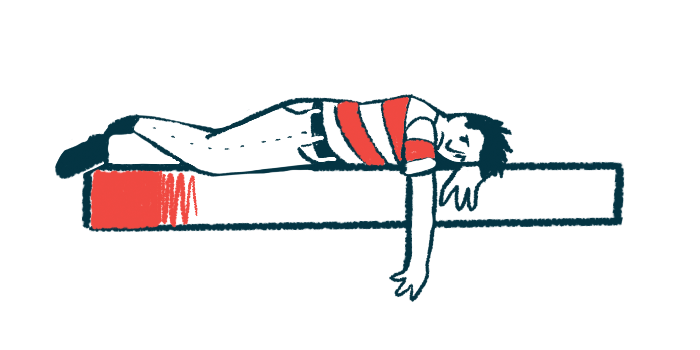Trikafta may ease depression, anxiety in adults with CF: Study
Effect most pronounced in those with mild anxiety or depression
Written by |

Treatment with Trikafta (elexacaftor/tezacaftor/ivacaftor) may ease anxiety and depression symptoms in adults with cystic fibrosis (CF), a study found.
A higher proportion of patients experienced a clinically significant easing in both anxiety and depression symptoms than those who saw their symptoms worsen. Those with clinically significant changes in either direction were more likely to have a previous psychiatric diagnosis and use psychiatric medications before Trikafta initiation.
“Based on the results of our study, we encourage other clinics to consider systematic mental health screening both pre- and post-[Trikafta] given the potential for mental health worsening in a subset of individuals, particularly amongst those with a prior psychiatric diagnosis or use of psychiatric medications at baseline,” the researchers wrote.
The study, “Assessing the impact of elexacaftor/tezacaftor/ivacaftor on anxiety & depression symptom scores in adults with Cystic Fibrosis,” was published in the Journal of Cystic Fibrosis.
CF is caused by mutations in the CFTR gene, leading to no or faulty production of a CFTR protein that normally regulates the flow of chloride and water through the cell membrane. This results in the accumulation of thick and sticky mucus in several organs, particularly the lungs and organs of the digestive and reproductive systems. In addition to their physical symptoms, people with CF may also have mental health issues, such as depression or anxiety.
Findings mixed on mental health and Trikafta
Treatment with Trikafta, a CFTR modulator, has been shown to significantly improve lung function and nutritional status in CF patients. However, “the mental health effects of [Trikafta] on adults with CF are still uncertain with mixed findings from published studies,” the researchers noted.
To investigate the treatment’s impact on anxiety and depression, researchers in Canada analyzed patients’ self-reported data on two questionnaires: the Generalized Anxiety Disorder 7-item (GAD-7) and the Patient Health Questionnaire 9-item (PHQ-9).
The data were obtained from the mental health screening database at St. Paul’s Hospital Adult CF Clinic in Vancouver. The study involved 100 adults with CF with questionnaire scores available at baseline (before Trikafta initiation) and at six months of treatment. Ninety patients also had scores at one year. The median age for the overall group was 35. Fifty-six percent were men, and 75% had not been treated with other CFTR modulators.
Both GAD-7 and PHQ-9 scores decreased by a median of one point at six months of treatment initiation and remained lower at one year. Up to six months, results showed no significant differences in the proportion of patients whose anxiety was mild, moderate or severe.
However, at one year, the proportion of patients with mild anxiety decreased significantly, from 30% to 19%, while those with minimal symptoms increased to 66% from 52%. A similar effect was observed for depression, although those effects were already seen at six months in those with mild severity (40% at baseline, 21% at six months, and 24% at 12 months).
Still, there was no change in the proportion of patients with moderate to severe symptoms.
Regarding clinically important changes, defined as an increase or reduction of 4 points from baseline, most patients experienced no changes in anxiety (70%) or depression (60%) at six months.
Still, a higher proportion of participants had a clinically significant improvement in both anxiety (20%) and depression (30%), compared with those whose symptoms were worse (10% for both scores) at six months.
Results also showed that those with clinically significant improvement or worsening in anxiety and depression scores were more likely to have a psychiatric diagnosis and to use psychiatric medication before initiating treatment with Trikafta.
“Further studies are needed to better understand factors that contribute to the worsening of mental health symptoms on [Trikafta] for a subset of individuals and to identify psychiatric interventions to reduce the proportion of individuals living with persistent moderate to severe anxiety and depression symptoms,” the researchers wrote.







